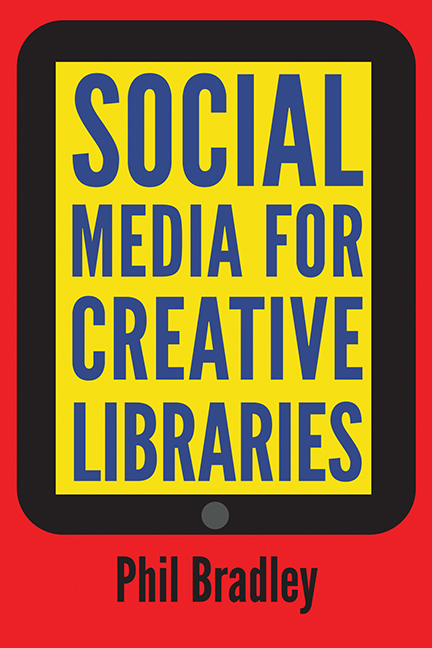Book contents
- Frontmatter
- Contents
- List of figures
- Preface
- 1 An introduction to social media
- 2 Authority checking
- 3 Guiding tools
- 4 Current awareness and selective dissemination of information resources
- 5 Presentation tools
- 6 Teaching and training
- 7 Communication
- 8 Marketing and promotion – the groundwork
- 9 Marketing and promotion – the practicalities
- 10 Creating a social media policy
- Appendix: Social media disasters
- Index
2 - Authority checking
Published online by Cambridge University Press: 10 September 2022
- Frontmatter
- Contents
- List of figures
- Preface
- 1 An introduction to social media
- 2 Authority checking
- 3 Guiding tools
- 4 Current awareness and selective dissemination of information resources
- 5 Presentation tools
- 6 Teaching and training
- 7 Communication
- 8 Marketing and promotion – the groundwork
- 9 Marketing and promotion – the practicalities
- 10 Creating a social media policy
- Appendix: Social media disasters
- Index
Summary
Introduction
A vital activity that information professionals have always undertaken is checking the validity of the content that they find, and warning or advising their enquirers. The publication date of a book, the bias of the newspaper, the expertise of the author, the respect accorded to the journal and the number of citations for the article are all standard criteria that have been used on a daily basis and, of course, are still used.
With the increasing importance of the internet it was necessary to come to grips with an entirely new way of assessing the authority and validity of the content that appeared on the screen. The URL of a website with, for example, a .gov.uk domain trumped that of a more casual .co.uk. In the early days of the expansion of the internet there was a real Wild West attitude at large, with people registering any domain names that they could get their hands on, in the hope of selling it back to the ‘rightful owner’. I recall some enterprising soul buying up various .co.uk domains using the names of different universities, then selling them on for a quick profit. However, that particularly lucrative trade didn't last too long before the lawyers and courts got involved. It's still an interesting area, though, as new domain names are constantly being put into circulation, and we now face a plethora of new domain extensions such as .guru, .food, .wales, .finance and so on.
There are also plenty of fake or spoof websites in existence and in the main these are created simply for the humour of the situation. The Dihydrogen Monoxide Research Division, at www.dhmo.org is one such example, warning us about the dangers of a dangerous chemical otherwise known as ‘water’, or the delightful Dog Island, at www.thedogisland.com, which is a site that describes an island where dogs are free to roam and bark and play all day long while on their holidays. However, there are also rather more unsavoury sites, such as the one produced by a racist organization designed to criticize a particular civil rights leader, which constantly gets a high ranking in Google results. We have learned by trial, error and basic common sense not to trust the information that we find on the internet, and part of our job is to pass this wariness onto the people that we work with.
- Type
- Chapter
- Information
- Social Media for Creative Libraries , pp. 17 - 30Publisher: FacetPrint publication year: 2015



